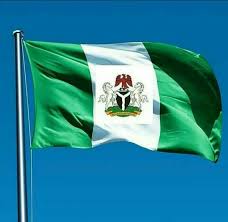The Federal Government has called on state governments to demonstrate stronger commitment to the implementation of the Sustainable Urban and Rural Water Supply, Sanitation and Hygiene (SURWASH) programme to accelerate access to safe water and improved sanitation nationwide.
Minister of Water Resources and Sanitation, Prof. Joseph Utsev, made the appeal on Wednesday in Abuja while declaring open the Fourth Federal Steering Committee Meeting of the World Bank-assisted SURWASH programme.
He said the meeting aimed to review progress in the seven implementing states—Delta, Ekiti, Gombe, Imo, Kaduna, Katsina and Plateau, and consider their revised work plans for approval.
Utsev expressed concern over delays in the submission of state work plans, describing it as one of the key factors slowing implementation.
“We must all show stronger ownership and commitment at both the federal and state levels if we are to achieve the desired impact of this programme,” he said.
He explained that the first phase of the SURWASH restructuring, completed earlier this year, had improved disbursements to states through achievements recorded under the Disbursement Linked Indicators.
“We are now in the second phase of restructuring, which aims to strengthen programme institutions, improve accountability, and onboard new states into the SURWASH initiative,” he added.
Utsev said the Federal Government was collaborating with the World Bank to include 10 additional states, bringing the total number of participating states to 17, with plans for nationwide expansion in subsequent cycles.
“Our vision is for all 36 states and the FCT to eventually benefit from SURWASH interventions, in line with President Bola Ahmed Tinubu’s Renewed Hope Agenda for universal access to water and sanitation,” he stated.
National Programme Coordinator of SURWASH, Mr Abdulhamid Gwaram, said the meeting was essential to finalising and harmonising state work plans for federal approval.
He assessed the programme’s performance as “very good and modest,” noting that while institutional strengthening had achieved notable results, service delivery was still improving under the performance-based funding model.
“In Result Area One, which focuses on strengthening institutions, we are doing very well. However, in service delivery, we are modest because the Programme-for-Results (P4R) model is new to Nigeria,” Gwaram said.
He noted that some states initially misunderstood the funding structure but had now embraced the performance-based approach.
“States now understand that SURWASH is not a repayment programme but one that rewards performance, the better you do, the more support you get. We appreciate their growing commitment and urge them to continue working diligently to ensure the programme’s success,” he added.
The SURWASH programme, supported by the World Bank, aims to increase access to water, sanitation and hygiene services, strengthen sector institutions, and promote sustainable water resource management in participating states.
(NAN)


